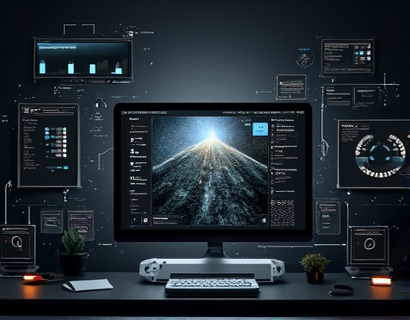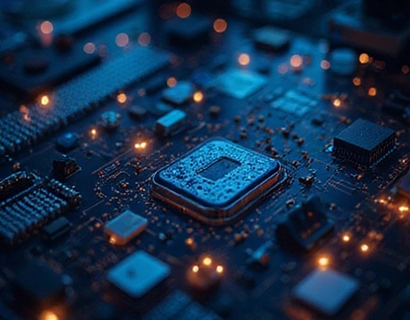AI Chat Interface: Transforming Engagement in Competitive Gaming Communities
The landscape of competitive gaming and esports is rapidly evolving, driven by technological advancements and the growing demand for immersive, interactive experiences. At the heart of this transformation is the integration of Artificial Intelligence (AI) into chat interfaces, revolutionizing how tournament enthusiasts, players, and fans connect and engage with each other. This article delves into the profound impact of AI-powered chat platforms in enhancing community engagement, accessibility, and the overall competitive gaming experience.
The Need for Advanced Community Engagement Tools
Competitive gaming and esports have seen exponential growth, attracting millions of players and viewers worldwide. With this growth comes the challenge of maintaining robust, real-time communication channels that cater to diverse user needs. Traditional chat platforms often fall short in providing the necessary speed, relevance, and interactivity required for a dynamic gaming community. AI chat interfaces address these shortcomings by offering a more intelligent, responsive, and personalized experience.
Real-Time Updates and Insights
One of the most significant advantages of AI chat interfaces is their ability to deliver real-time updates and insights. During tournaments, fans and followers crave immediate information about match progress, player performances, and key moments. AI-powered chat platforms can aggregate data from various sources, such as live streams, social media, and official tournament feeds, to provide users with up-to-the-minute updates. This ensures that users remain engaged and informed, enhancing their overall experience.
Moreover, AI can analyze game data to offer insights that human curators might miss. For instance, AI can identify trends in player strategies, predict outcomes based on historical data, and highlight standout performances. These insights not only enrich the conversation but also deepen the audience's understanding and appreciation of the game.
Enhanced Interactivity and Community Building
Interactivity is a cornerstone of engaging gaming communities. AI chat interfaces introduce advanced features that foster more meaningful interactions among users. Chatbots powered by natural language processing (NLP) can understand and respond to user queries in a conversational manner, making the experience feel more natural and intuitive. This capability is particularly useful for handling frequent questions, providing rules explanations, and guiding new users through the community.
Beyond basic Q&A, AI chat interfaces can facilitate interactive discussions and polls. For example, during a tournament, users can participate in real-time polls to decide on specific game-related topics, such as the most likely winner or the best play of the match. These interactive elements not only increase user participation but also create a sense of community and shared experience.
Personalization and User-Centric Design
AI's strength lies in its ability to learn from user behavior and preferences, enabling highly personalized experiences. AI chat interfaces can tailor content and interactions based on individual user profiles, ensuring that each user receives relevant and engaging information. For instance, a user who frequently follows a particular team or player can receive notifications and updates specifically related to that interest.
Personalization extends to the chat interface itself, adapting to user preferences in terms of language, tone, and the type of content displayed. This user-centric approach not only enhances user satisfaction but also increases the likelihood of users spending more time within the community, fostering deeper engagement.
Accessibility and Inclusivity
Accessibility is a critical aspect of building inclusive gaming communities. AI chat interfaces can significantly improve accessibility by providing multilingual support, text-to-speech functionality, and customizable display options. These features ensure that users with different needs and preferences can fully participate in the community, breaking down barriers and broadening the audience base.
Moreover, AI can help moderate content and maintain a positive community environment. By detecting and filtering out inappropriate or harmful content, AI chat interfaces contribute to a safer and more welcoming space for all users. This is particularly important in competitive gaming, where tensions can run high, and maintaining a respectful atmosphere is crucial for long-term community health.
Challenges and Considerations
While the benefits of AI chat interfaces are clear, there are challenges and considerations that must be addressed. One primary concern is the accuracy and reliability of AI-driven insights and responses. Misinterpretations or incorrect information can lead to confusion and frustration among users. To mitigate this, continuous training and refinement of AI models are essential, leveraging large datasets and user feedback to improve performance.
Another consideration is user privacy and data security. AI chat interfaces handle a significant amount of user data, including personal preferences and interaction history. Ensuring robust data protection measures and transparent privacy policies is vital to maintaining user trust and compliance with regulations.
Future Prospects and Innovations
The integration of AI into chat interfaces is just the beginning. Future innovations promise even more advanced features and capabilities. For instance, the incorporation of machine learning algorithms can enable predictive analytics, allowing the platform to anticipate user needs and proactively offer relevant content. This could include suggesting matches to watch based on viewing history or recommending new players to follow based on interaction patterns.
Virtual and augmented reality (VR/AR) technologies, when combined with AI chat interfaces, can create immersive experiences that blur the line between the digital and physical worlds. Users could engage in virtual watch parties, interact with 3D representations of players, or even participate in virtual tournaments, all facilitated by intelligent chat systems.
Conclusion
The integration of AI into chat interfaces is transforming the competitive gaming and esports landscape, offering unprecedented levels of engagement, interactivity, and accessibility. By providing real-time updates, personalized content, and advanced interactive features, AI chat platforms are setting a new standard for community building and user experience. As technology continues to evolve, the potential for further innovation and enhancement is vast, promising an even more connected and dynamic future for gaming communities.










































